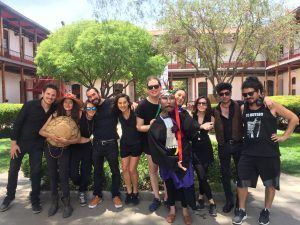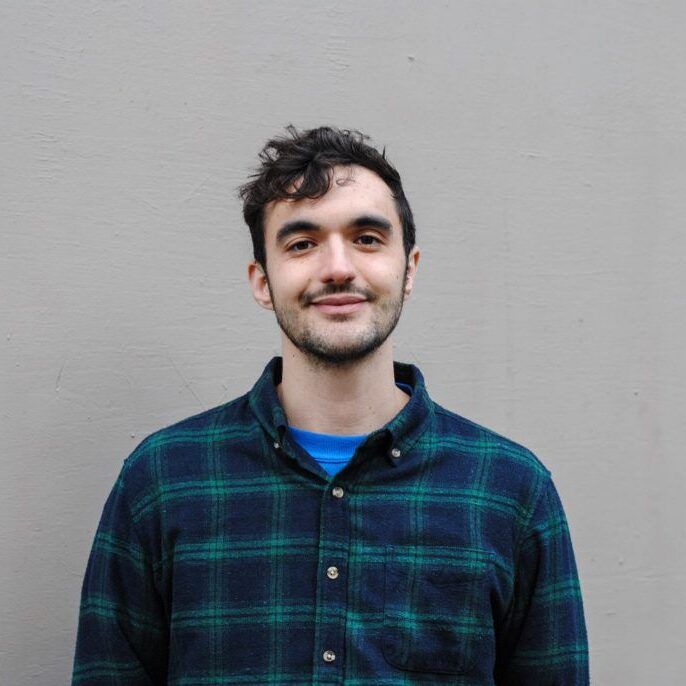Paula Tassara – Cultura Planetaria
In our blogs we are highlighting the work of Activists in Scotland and Internationally. Chile was to be the host of COP25 until the social uprising precipitated a sudden move of the climate talks to Madrid. In this blog Paula Tassara, aka Pau De Planet, a Geo-Artivist from Chile, reflects on the situation and what they achieved, and gives her experiences of the importance and centrality of arts and creativity in the climate movement.
A year ago,
before COVID-19,
before COP25 was cancelled,
before our historical social outbreak ignited, just a few blocks from home…
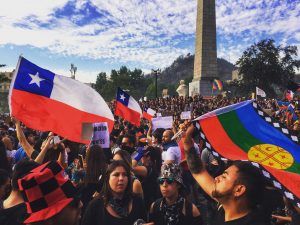
The eyes of the world around “climate negotiations” was turning South, Greta was crossing the Atlantic to New York, and the environmental movement here in Chile was blossoming in a way I hadn´t seen since 2011, when civil society (myself included) went out to the streets to defend our natural heritage and stop the construction of mega-dams from being built in the mighty watersheds of wild Patagonia.
As COP25 approached, youth climate strikers were taking the lead in renewing the energy of a broader symbiotic community of movements around socio-environmental issues. A local/global movement was emerging, and that was about to flow into the Mother of all Marches in Chile on October 25, 2019. New activist streams (vegan, eco-feminist, eco-LGBTi, pro-Escazú Agreement, zero waste, and glacier movements) joined the broader flow of socio-environmental movements, including the indigenous rights, and a range of movements relating to water rights & security.
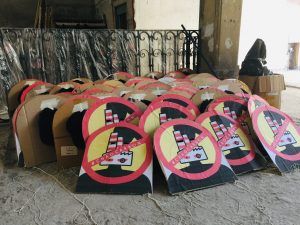
Last August, a friend of mine opened an underground space called “Maleta” to accommodate the work of artists, artivists, and global civil society groups such as Fridays for Future, XR and Artivist Network. Maleta was an old, tall ceiling, Art Deco building built in the early 20th Century in the historical casque of Santiago. Ironically, it had catered for world travellers with fine suitcases for decades, but due to rocketing land prices, the building had been sentenced to demolition in 2020 to clear the land for a new development.
Maleta became the heart of a creative local/global civil society connection, a hotspot for counter-culture, and for a more relaxed international social agenda. It was our home-base, open Monday to Sunday where hundreds of banners, stencils and “Ters” (see below) were handcrafted before marches up to the late evening hours. Large empty halls were occupied by activists who cross-pollinated with social artists .
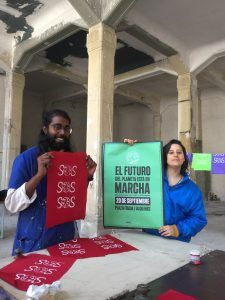
#ChaoCarbon (“bye to coal”) was one campaign that became prominent, with good reason. Our Government was calling the world to decarbonise, while back home over 40% of our electricity came from toxic coal in apocalyptic areas widely known as “sacrifice zones”. #ChaoCarbon gifted us one of my favourite examples of artivist craft. Meet “Ter” (short for thermoelectric plant), a banner/mask hybrid (PHOTO 4). Cheap to make, and highly rich in social value. Friends from ChaoPescao who created Ter took him/her as a character to COP25 in Madrid. Ter walked around the Blue Zone and stopped to simply stand in silence behind targeted stakeholders who spoke in front of cameras. Until, of course, Ter was kicked out from the venue. But from all around the globe, people saw this mysterious character…
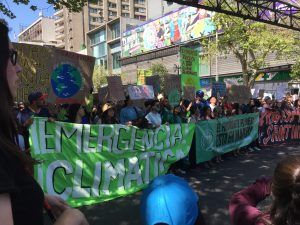
Despite how short lived, Maleta gave me the opportunity to meet interesting people who inspired me to dive deeper into culture and to get more involved in collaborative arts. Perhaps you and I would have met at the gig we were planning for the launch of Cultura Planetaria, a collective of artists that I created to perform with the purpose of connecting more hearts and minds with climate change around us. Despite COP being cancelled, we were lucky that the Parallel COP organised by the Civil Society Alliance for Climate Action (SCAC), and the People´s Summit in Santiago pushed forward, and welcomed our art. This group of wholehearted, generous individuals and artists honestly nurtured my soul.
